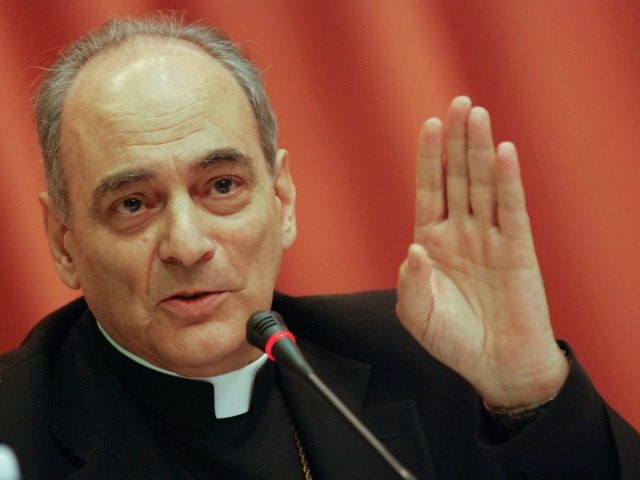Critics of a new accord between China and the Vatican on the naming of bishop are nothing but a “loud minority” trying to cause trouble, a top Vatican bishop told the Global Times.
“They are very strong in their position. They are loud, but there are not very many of them. They are a loud minority,” said Argentinian Bishop Marcelo Sanchez Sorondo, the chancellor of the Vatican’s Pontifical Academy of Sciences and the Pontifical Academy of Social Sciences.
Speaking from Xi’an, the capital of China’s Shaanxi Province, where he was attending an international meeting for organ transplantation, Bishop Sanchez responded to critics who have accused the Vatican of selling out the Chinese faithful, especially those of the beleaguered underground Church.
“In our interpretation, the critics are a little minority group of people, people who wanted to create trouble,” the bishop told the Global Times in an article published Saturday.
As he has done on other occasions, Bishop Sanchez lavished praise on the Chinese communist government, saying it “observes the common good” and has proved its ability to carry out great missions “like fighting against poverty and pollution.”
Like Pope Francis, China respects human dignity and the planet and both support global efforts to fight climate change, Sanchez said.
Last February, Bishop Sanchez famously proposed China as the best example of a nation that effectively puts Catholic social teaching into practice, inducing experts on the subject to note the prelate’s “naivete” for his wanton praise of Chinese communism.
In an interview with the Vatican Insider, Sanchez said that “at this moment, the Chinese are the ones implementing Catholic social teaching best.”
Unlike many other countries, the Chinese “look for the common good and subordinate other things to the general welfare,” Sánchez insisted.
The prelate then went on to describe the prosperity and well-being he had observed in the Asian nation.
“You don’t have shantytowns, you don’t have drugs, young people do not take drugs. There is like a positive national consciousness, they want to show that they have changed, and now they accept private property,” he said.
In his description of China’s promotion of the common good, Bishop Sanchez somehow overlooked the country’s forced abortions and two-child policy, slave labor, the rampant persecution of Christians, severely limited freedoms, and a church demolition campaign under China’s one-party system.
The U.S. Commission on International Religious Freedom has consistently designated China as a “country of particular concern” for its egregious violations of religious liberty against Christians and others.
During 2016, “as China’s President Xi Jinping further consolidated power, conditions for freedom of religion or belief and related human rights continued to decline,” the Commission stated in its most recent report, noting that authorities “target anyone considered a threat to the state, including religious believers, human rights lawyers, and other members of civil society.”
The most vocal critic of the Vatican-China accord has been Hong Kong Cardinal Joseph Zen, who recently called for the resignation of Vatican Secretary of State Pietro Parolin, saying that the deal he has been brokering with China amounts to an “incredible betrayal” of the Catholic faith.
Zen has described Cardinal Parolin as a secular bureaucrat with little interest in the spiritual wellbeing of the faithful.
“I don’t think he has faith. He is just a good diplomat in a very secular, mundane meaning,” Zen said. “He should resign.”
Cardinal Zen has also said that Pope Francis “is really naïve” and “doesn’t know the Chinese communists,” which has led him to make grave errors in dealing with them.
“I’m afraid that they may sell out our underground Church,” he said.
Follow Thomas D. Williams on Twitter Follow @tdwilliamsrome

COMMENTS
Please let us know if you're having issues with commenting.